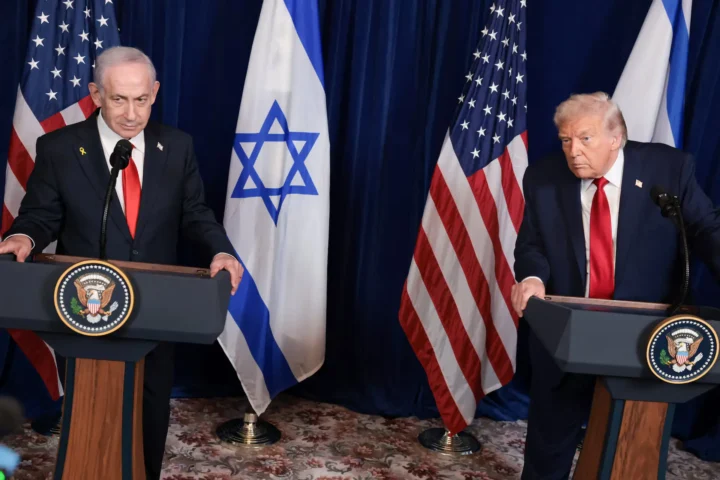As the 2024 U.S. presidential and congressional elections draw near, European leaders are watching with a mixture of anxiety and anticipation. Transatlantic relations, already tested by recent global challenges, face a pivotal moment that could redefine the future of cooperation between the United States and Europe. For many across the continent, the possibility of Donald Trump returning to the White House is a cause for deep concern. The stakes could not be higher: democracy, security, and economic stability all hang in the balance.
First and foremost, Europeans worry that a second Trump presidency would accelerate the decline of democratic norms in the United States, with far-reaching consequences. The erosion of democratic institutions, already evident in U.S. domestic politics, threatens to fuel a global rise in authoritarianism. During his first term, Trump’s governance style, characterized by populist rhetoric and disregard for traditional checks and balances, emboldened nationalist movements worldwide. A second term could further legitimize these forces, potentially leading to a more fragmented and authoritarian-leaning Europe. For European leaders, this is not just a question of U.S. democracy but a looming challenge to the global democratic order.
Beyond political norms, security concerns loom large for European nations. NATO, the cornerstone of European defense, relies heavily on U.S. leadership and resources. Trump’s well-documented skepticism of NATO’s collective defense commitment—especially his previous wavering over Article 5—has left European leaders apprehensive. They fear he could use NATO as a bargaining chip, pushing Europe to increase its defense spending under the threat of a U.S. withdrawal. More alarming still, Trump has signaled a willingness to negotiate with Russian President Vladimir Putin over Ukraine. For Europe, which views Russia’s aggression as a direct threat, such negotiations would be seen as dangerously naive or, worse, a capitulation that compromises Ukrainian sovereignty.
In light of the ongoing war in Ukraine, European nations are counting on consistent U.S. support, not just in terms of military aid but also political resolve. Trump’s unpredictability and transactional approach to foreign policy raise doubts about his ability—or desire—to uphold this commitment. The consequences of a less reliable U.S. within NATO could leave Europe vulnerable to both Russian military aggression and further destabilization within its own borders.
The potential economic fallout of another Trump presidency also weighs heavily on European leaders. His protectionist economic policies, particularly his readiness to impose tariffs on European goods, could trigger a trade war at a time when global economic stability is already precarious. Tariffs on steel, aluminum, and automobiles would hit key European industries, threatening jobs and growth in several member states. Trump’s aggressive stance toward China, and his expectation that Europe follow suit, could further complicate transatlantic economic relations. For European economies deeply intertwined with China, a full decoupling, as Trump has advocated, would be disruptive and costly.
Kamala Harris, who could potentially take the reins, presents a markedly different prospect for Europe. Her approach is more predictable and grounded in established norms of international cooperation. Harris has expressed strong support for NATO, Ukraine, and the multilateral system that has long underpinned the transatlantic alliance. While her policies would still demand more from Europe, especially in terms of defense spending and support for Ukraine, European leaders seem far more comfortable with the expectations she would set. Unlike Trump, who views foreign policy through the lens of zero-sum bargaining, Harris would likely seek partnership and coordination, particularly on issues such as climate change, China, and the global economy.
This is not to suggest that a Harris presidency would offer Europe a smooth ride. The challenges of China’s growing influence, the need for increased defense contributions, and the management of climate change policies will still require negotiation and compromise. However, these are discussions that European leaders would prefer to have within a framework of mutual respect and shared goals—something they fear will be impossible with Trump’s return.
As 2024 approaches, the U.S. elections have become more than a domestic political drama—they are a critical inflection point for Europe’s future. Whether Trump or Harris prevails, the outcome will profoundly shape the trajectory of transatlantic relations, testing the strength of the historic bonds between Europe and the United States. For Europeans, the choice between these two vastly different paths is clear: one offers cooperation and continuity, the other uncertainty and division. The world is watching, and for Europe, the stakes have never been higher.











